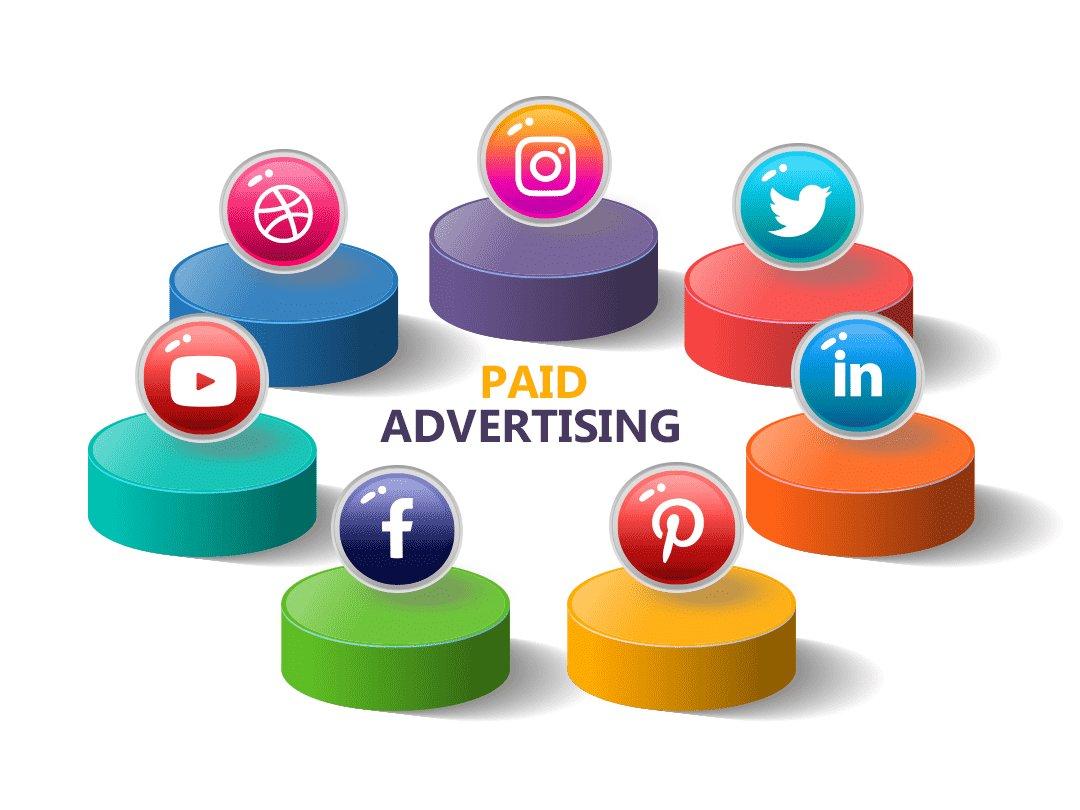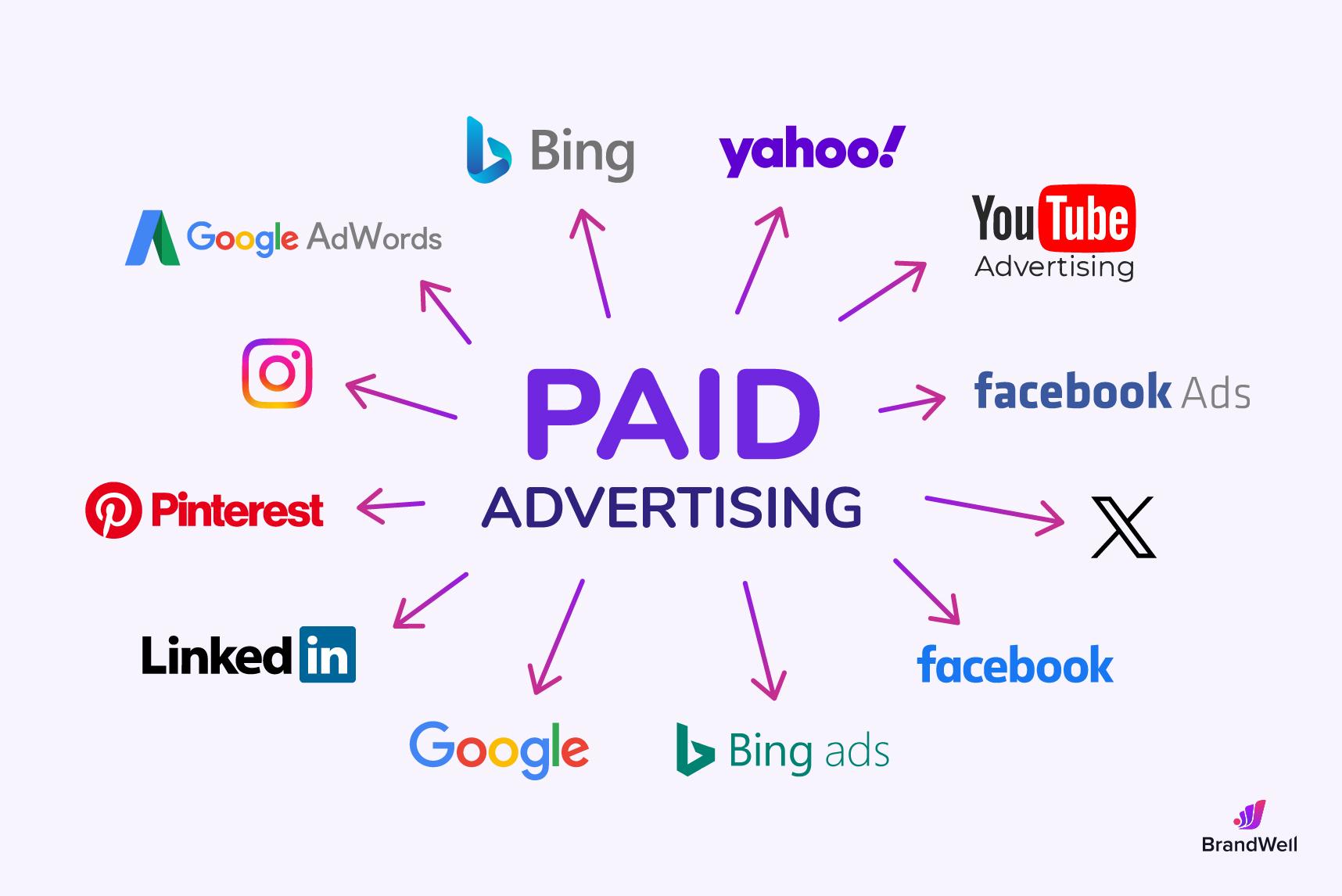In an era where digital marketing strategies are evolving at lightning speed, the conversation around paid advertising has become increasingly complex and nuanced.Many brands,driven by the desire for rapid growth and immediate visibility,ofen default to the age-old solution of running ads. But as highlighted in the thought-provoking YouTube video titled “,” it’s time to pause and reflect on the true efficacy and ethical implications of these approaches. The video explores the juxtapositions of organic reach versus paid strategies,unraveling the myths behind the glittering allure of ads amidst the backdrop of changing tracking technologies and consumer behavior. With platforms like Apple tightening data privacy, the ability to measure the effectiveness of paid campaigns has become murky at best. Is traditional advertising still the golden ticket for brand growth, or is it merely a costly gamble with little return? Join us as we delve deeper into these pressing questions and discover alternative pathways that champion ethical marketing practices while still aiming for brand expansion.
Table of Contents
- Reassessing the Value of Paid Ads in Modern Marketing
- Understanding the Impact of Tracking Limitations on Ad Effectiveness
- Exploring Organic Growth Strategies for Sustainable Brand Development
- Implementing Ethical Marketing Practices for Long-Term Success
- Q&A
- In Conclusion
Reassessing the Value of Paid ads in Modern Marketing

The landscape of paid advertising has shifted dramatically, and many brands are beginning to reevaluate its effectiveness in a world where consumer behavior and technology are continually evolving. Rather than relying on paid ads as a primary method for brand growth, businesses are finding that the organic reach and engagement of their content can frequently enough yield more considerable results. For instance, achieving 9 million views through a viral video not only has the potential to connect with a broader audience but does so at a fraction of the cost compared to paid ads, which can be excessively high and perhaps unfruitful due to saturation in the market.
Moreover,the complications introduced by privacy regulations,such as those initiated by Apple,have significantly hindered the ability to track the success of paid advertising campaigns. This lack of clear attribution leads businesses to spend their budgets without a reliable way to measure the returns. As marketing strategies evolve, brands should consider focusing their efforts on authentic engagement and community building rather than pouring money into ads that contribute little to understanding their customer base. Companies that prioritize genuine interactions stand to cultivate more sustainable brand loyalty and make more informed decisions, ultimately leading to a healthier relationship with their audience.
Understanding the Impact of Tracking Limitations on Ad Effectiveness

The constraints imposed by recent tracking limitations are reshaping the landscape of digital advertising, leading to a growing skepticism about the effectiveness of paid ads. When brands invest in advertising, the expectation is that their efforts will lead to tangible results; however, the inability to accurately attribute conversions has rendered many ad campaigns ineffective. As tracking mechanisms become more restricted—most notably by major players like Apple—marketers find it increasingly tough to determine whether their investments are yielding any meaningful return.This lack of insight leads to situations where brands might be blindly pouring money into ads that fail to deliver, frequently enough resulting in nothing more than a financial drain.
Moreover, the saturation of ad placements has created an environment where standout content is crucial for engagement.Audiences are becoming immune to overly promotional content, causing many paid campaigns to be less effective than organic reach. In this shifting paradigm, brands should reconsider their strategies and focus on developing authentic connections with their audience through organic marketing efforts. This could involve content creation that emphasizes storytelling,community involvement,and building trust rather than relying solely on traditional advertising methods. By prioritizing meaningful interaction over sheer visibility, marketers can foster a deeper relationship with consumers, ultimately leading to a more sustainable brand presence.
Exploring Organic Growth Strategies for Sustainable Brand Development

In today’s digital landscape, many brands instinctively turn to paid advertising as a means to achieve quick visibility and growth.However, relying heavily on ads can lead to diminishing returns, especially when considering the shifting dynamics of online tracking. With platforms like Apple tightening their privacy regulations, the ability to attribute sales directly to advertising efforts is becoming increasingly complex. This uncertainty does not only make budgeting for ads a gamble, but it also raises the question of overall effectiveness. Brands are often spending significant resources on campaigns without a clear understanding of their impact, essentially “lighting their money on fire.”
Instead of chasing fleeting impressions, brands are encouraged to explore organic growth strategies that foster sustainable relationships with their audience.This approach opens up a multitude of avenues, including:
- Content Marketing: Creating valuable, relevant content that resonates with your target demographic.
- Community Engagement: Building connections through social media and customer interactions that invite loyalty and trust.
- SEO Optimization: Enhancing your online presence through search engine optimization to attract organic traffic.
- Collaborations: Partnering with like-minded brands or influencers to tap into new audiences.
Embracing these strategies not only drives engagement but also promotes ethical marketing practices, creating a brand image grounded in authenticity and transparency.
Implementing Ethical Marketing Practices for Long-Term Success
To build a sustainable brand in today’s market, ethical marketing practices must take center stage. The traditional reliance on paid advertisements has become increasingly ineffective, particularly in light of privacy changes that limit tracking capabilities. As an inevitable result, businesses can spend substantial amounts without any clear measurement of success or return on investment. Investing in organic growth—such as engaging content, community-building efforts, and authentic interactions—can create a loyal customer base that is much more valuable than fleeting paid impressions. This shift not only enhances brand credibility but also fosters a deeper connection with your audience.
Incorporating ethical principles into marketing strategies includes being obvious about your practices and respecting consumer privacy. Consider the following approaches to enhance your ethical marketing efforts:
- Content Authenticity: Focus on producing valuable and relatable content that resonates with your audience.
- Community Engagement: Actively involve your customers in discussions and feedback loops to build trust and loyalty.
- Sustainable practices: Highlight eco-friendly or socially responsible initiatives that demonstrate your commitment to the larger community.
By embracing these principles, brands can cultivate lasting relationships, create a positive brand image, and eventually reap the benefits of sustainable growth—making ethical marketing not just a tactic, but a cornerstone of a accomplished business strategy.
Q&A
Blog Post Q&A:
Q1: What’s the main message of the YouTube video “”?
A1: The video explores the challenges and inefficiencies of traditional paid advertising in today’s market. It argues that while many businesses automatically gravitate towards running ads to grow their brand, the effectiveness of such strategies has waned due to changes in tracking capabilities—especially post-Apple’s privacy updates. It emphasizes the importance of rethinking marketing strategies towards more organic and sustainable growth methods.
Q2: Why does the speaker believe paid ads are becoming less effective?
A2: The speaker points out that paid ads have become oversaturated and frequently enough fail to deliver measurable results. A significant factor contributing to this decline is enhanced privacy measures, particularly by companies like Apple, which have limited advertisers’ ability to track user behavior. Consequently, businesses cannot accurately attribute conversions to specific ads, making it challenging to determine if their investment is yielding returns.
Q3: What comparison does the speaker make regarding ad views?
A3: The speaker highlights a stark contrast between the cost of gaining 9 million views through a viral video versus 9 million views through paid ads. This comparison illustrates the often exorbitant expense of paid advertising strategies and implies that organic methods, which can yield similar numbers without direct monetary investment, may be more viable as the landscape evolves.
Q4: What alternative strategies does the speaker suggest for brand growth?
A4: while the video does not provide detailed alternative strategies, it suggests a pivot towards organic growth tactics. The speaker expresses a preference for methods that build authentic engagement and community around the brand, rather than relying heavily on paid advertisements that lack transparency and effectiveness.
Q5: Does the speaker think there is potential for betterment in paid advertising?
A5: The speaker acknowledges that there may be ways to improve paid advertising effectiveness, but admits that they have not yet discovered a reliable solution. Their ongoing commitment to organic marketing strategies reveals a belief that there are more fruitful avenues for growth that focus on genuine connections rather than merely purchasing visibility.
Q6: How does this discussion reflect broader trends in marketing?
A6: This discussion is reflective of a significant shift in the marketing landscape, where consumers increasingly prioritize authenticity and transparency. As privacy regulations tighten and consumer skepticism about paid ads rises, brands are reevaluating their marketing methodologies. The conversation around ethical marketing practices is gaining traction as businesses look for responsible ways to engage their audiences without compromising values.
Q7: what should marketers take away from this video?
A7: Marketers should reconsider their reliance on paid ads and explore more ethical, transparent, and organic marketing strategies. As the effectiveness of traditional ad models declines, building genuine relationships with consumers and fostering organic brand growth may yield better long-term results.
In Conclusion
As we conclude our exploration of ethical marketing strategies,particularly in the realm of paid advertisements,it’s clear that a paradigm shift is underway. the insights shared in the video “” highlight the growing challenges faced by brands in accurately measuring ad effectiveness, especially in light of stringent tracking limitations.
Rather than simply following the conventional path of pouring resources into paid ads, this discussion encourages marketers to rethink their approach.With the rise of organic growth strategies, companies are increasingly enticed by the notion that building genuine connections with their audience may be more fruitful than a fleeting viral moment.
As you navigate the ever-evolving landscape of digital marketing, consider this a call to action: evaluate your current strategies, question the effectiveness of paid ads, and explore the enriching potential of authentic engagement. In a world where consumer trust is paramount, may your marketing efforts reflect not just your brand, but also a commitment to ethical practices that resonate with your audience.
Thank you for joining us on this enlightening journey. Until next time, keep innovating with integrity!



